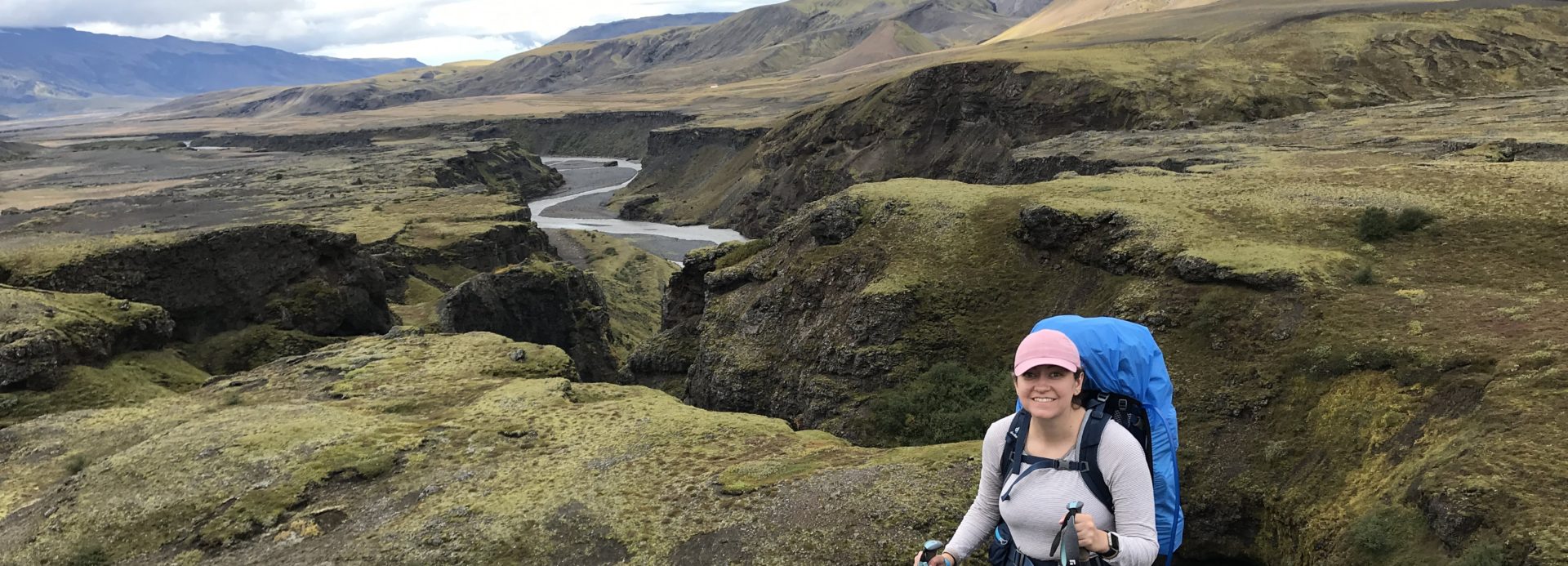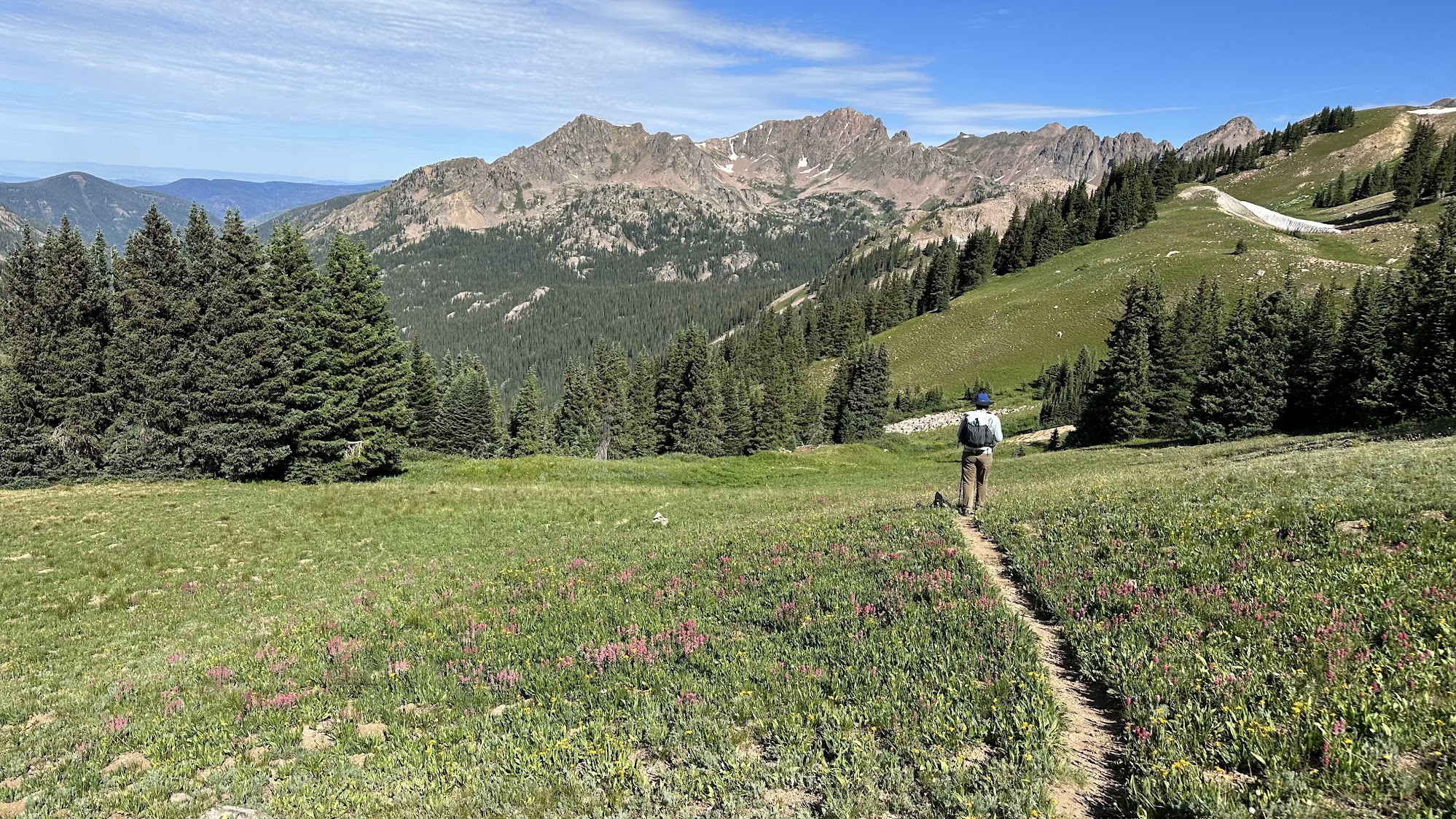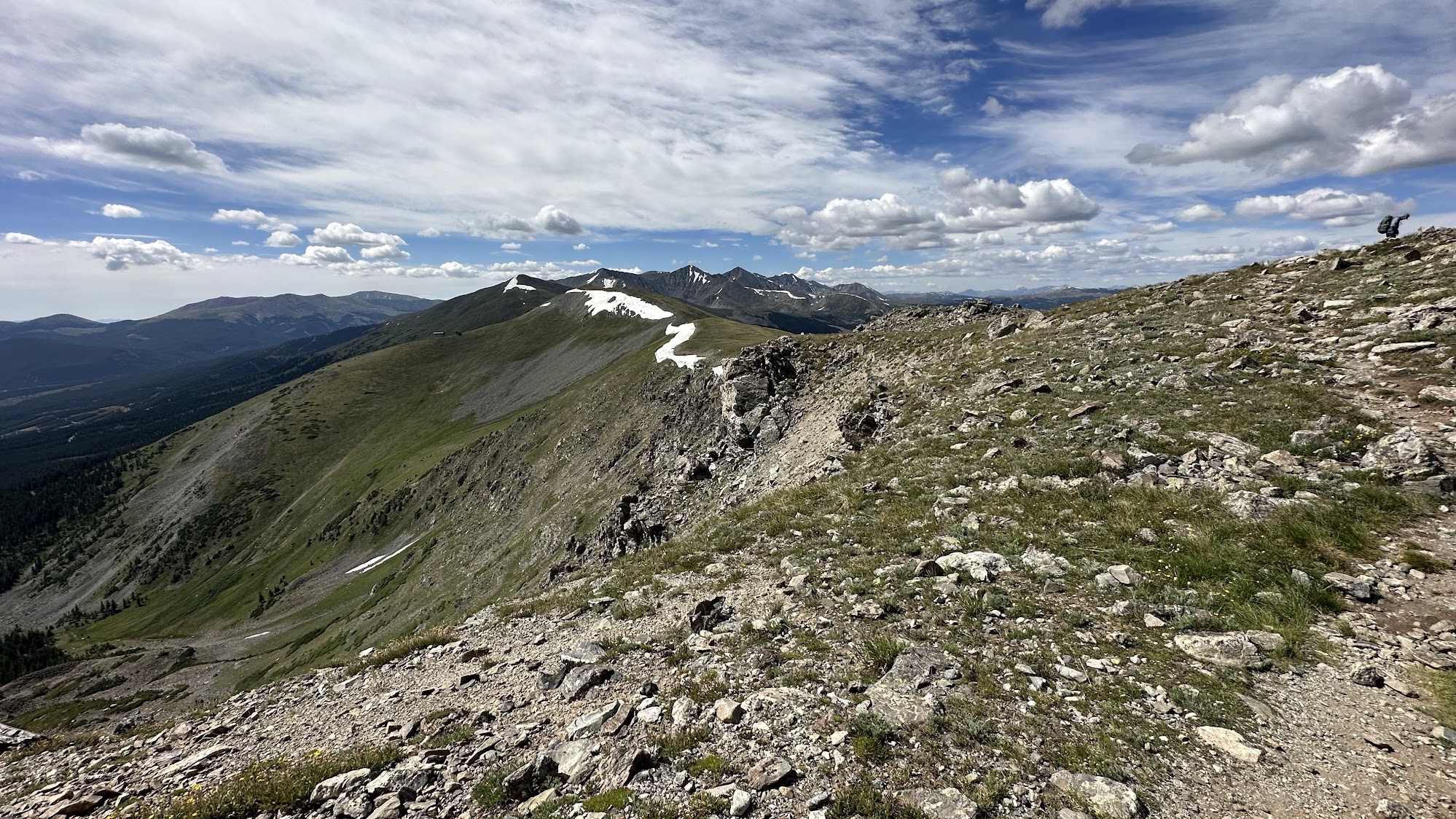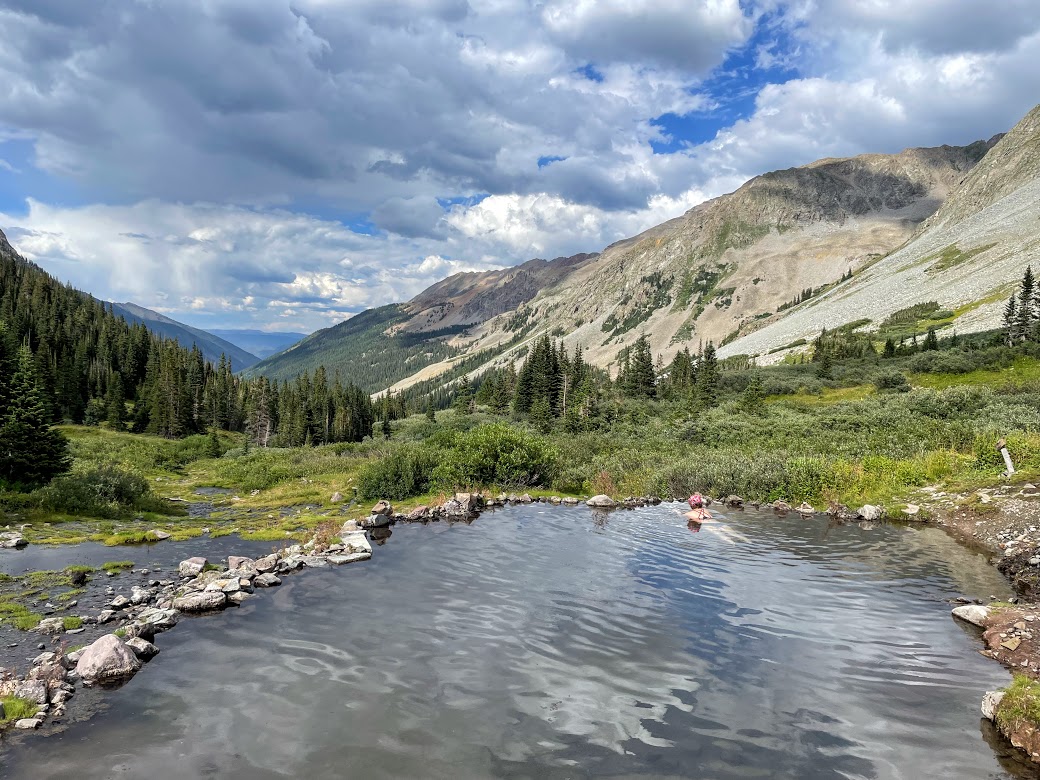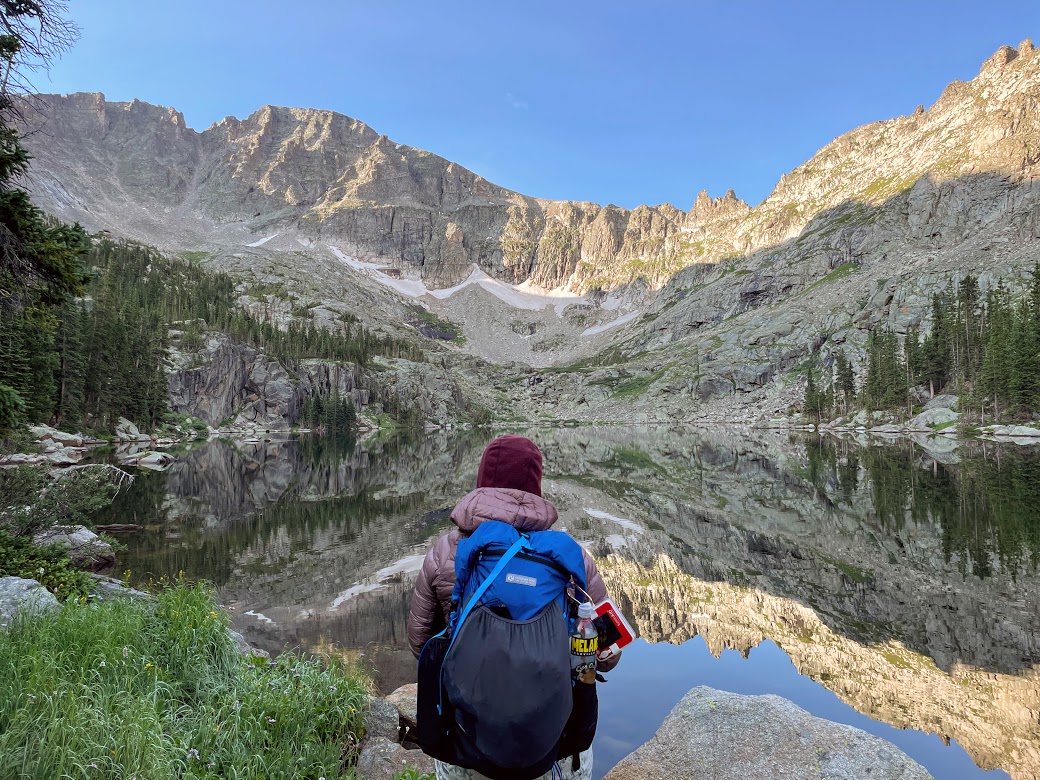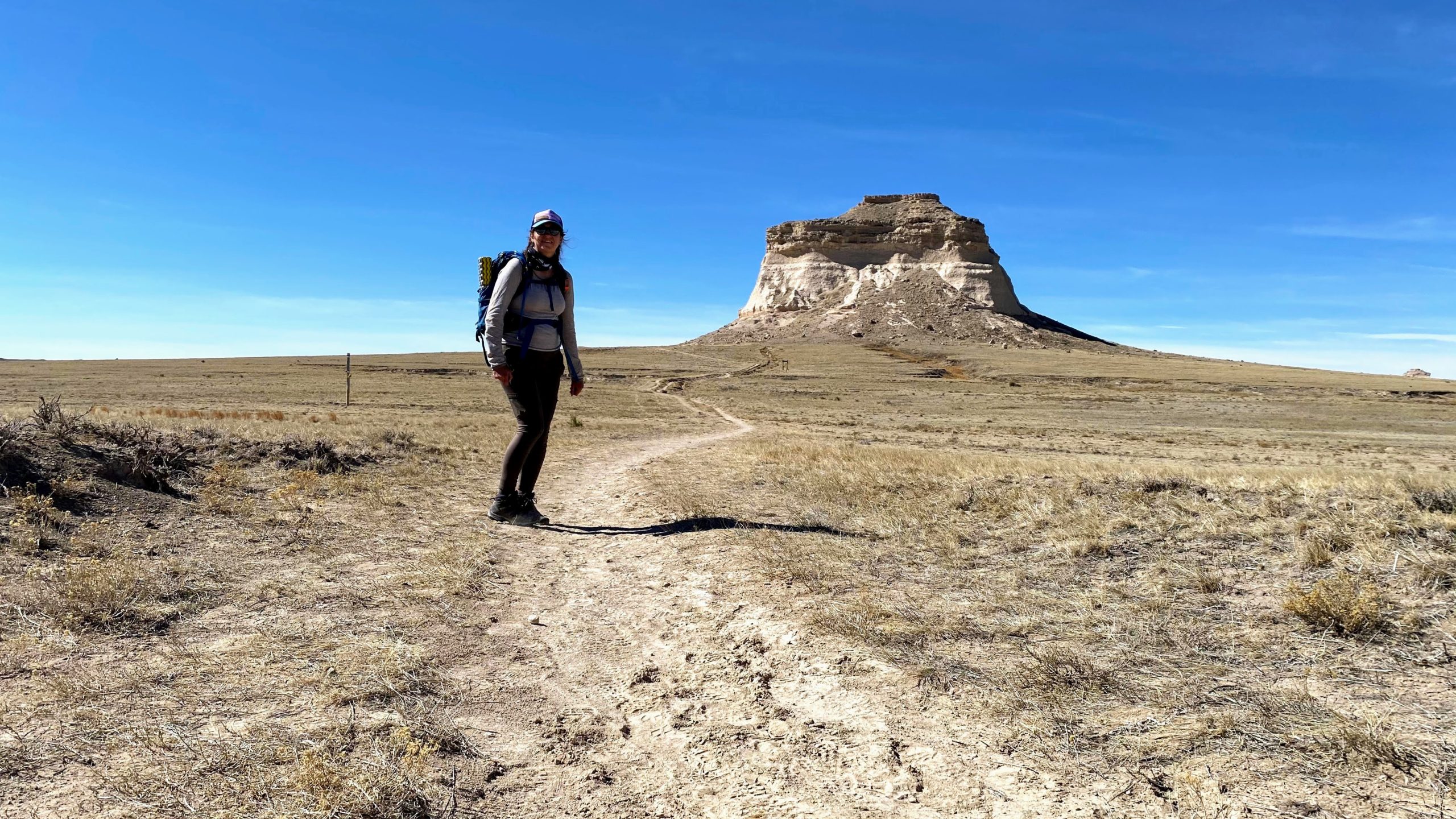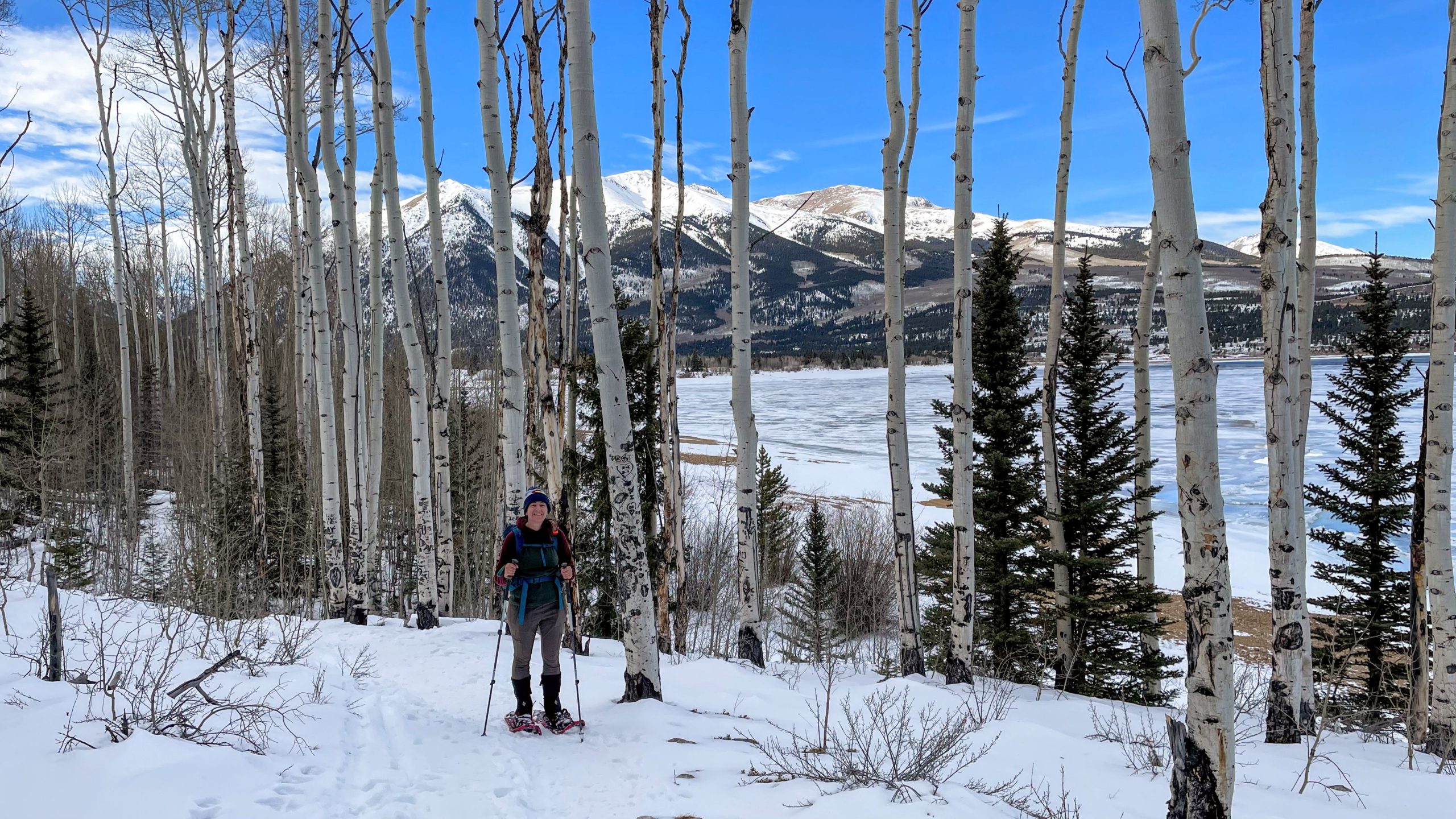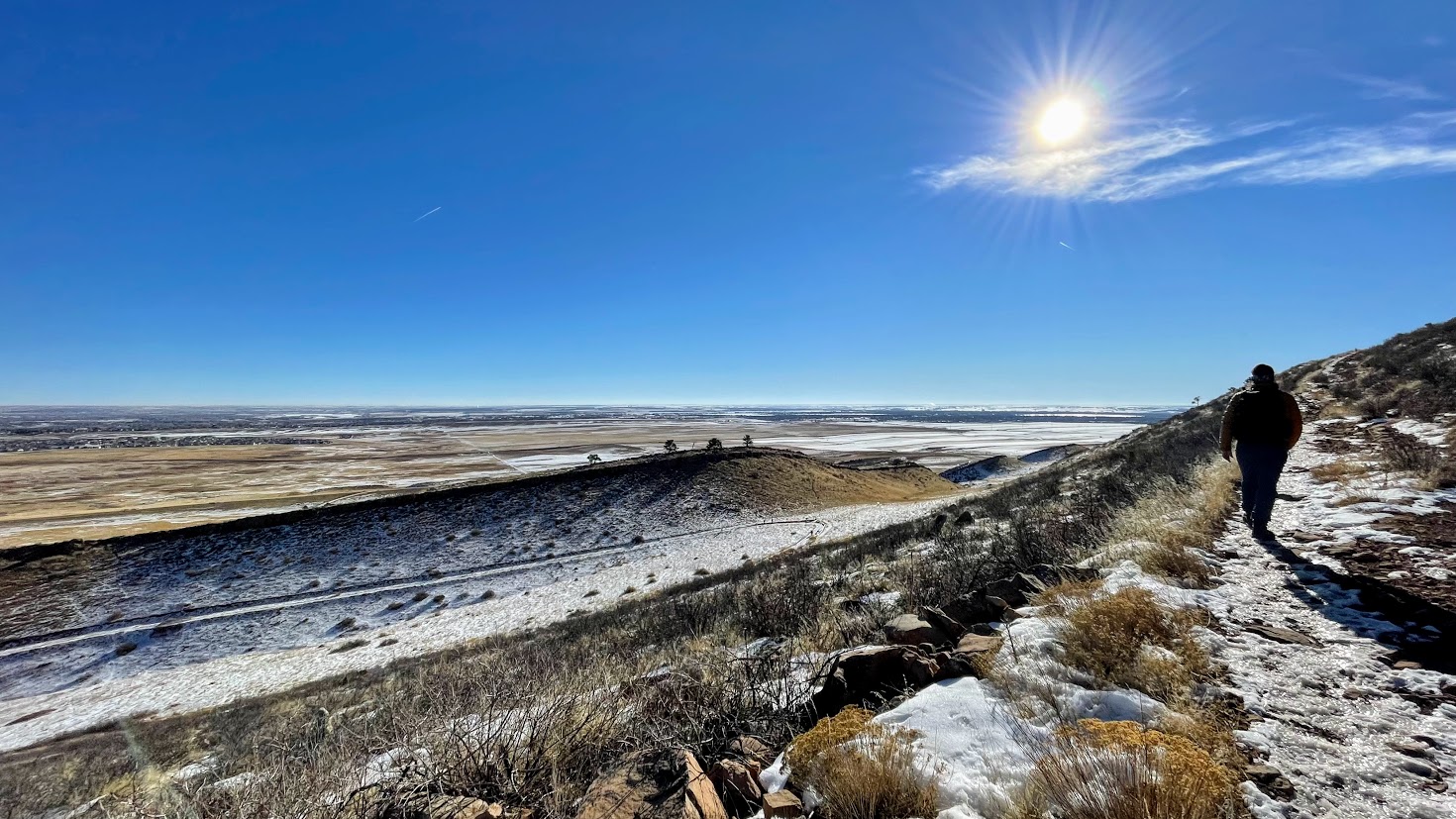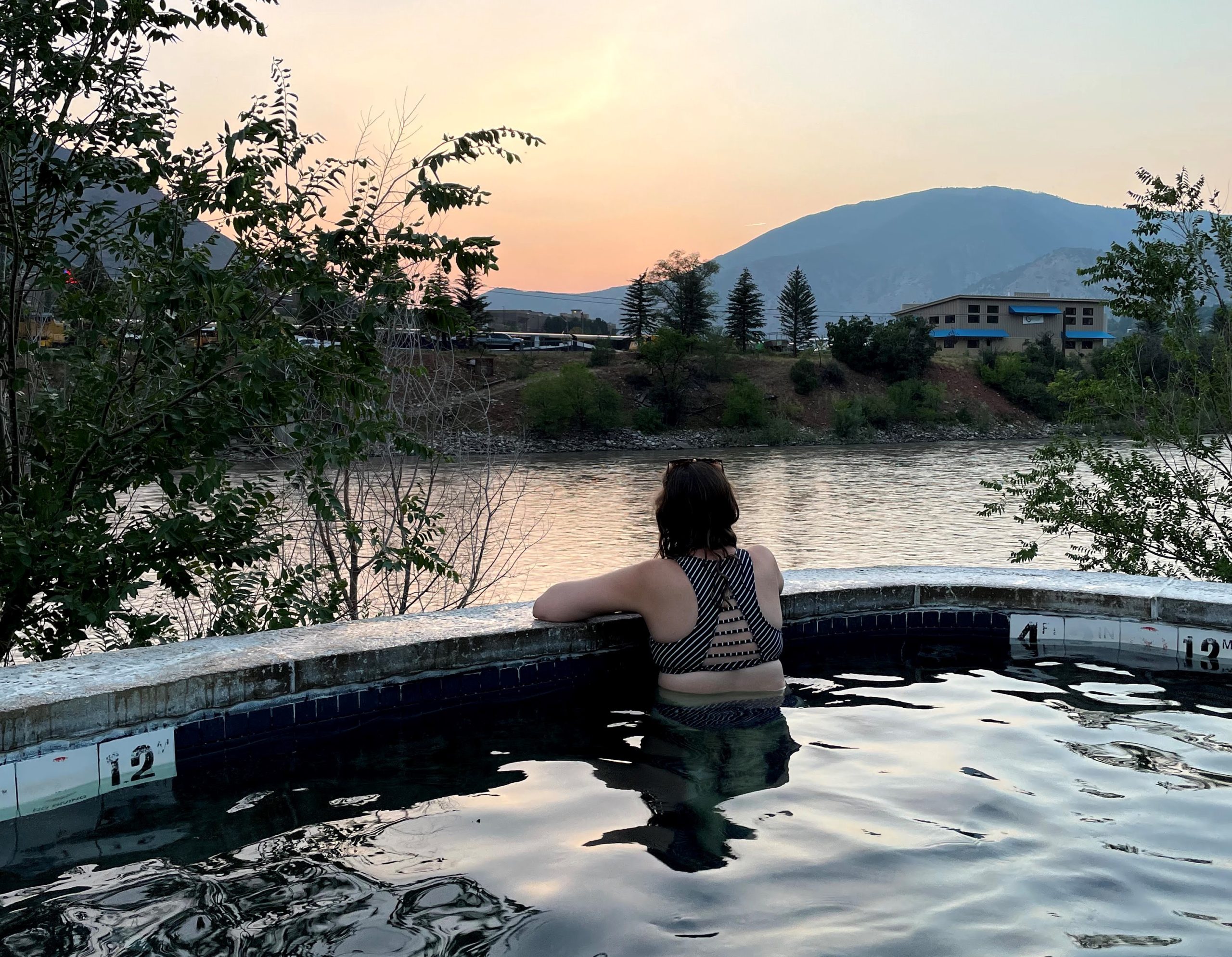The Pawnee-Buchanan Loop in the Indian Peaks Wilderness of Colorado has some of the most stunning scenery of any backpacking loop in Colorado. It is also the hardest backpacking trip I’ve done to date (AllTrails). 30 miles, about 7650 total elevation gain, two mountain passes, and some steep terrain. We had some weather and trail condition challenges that made this one extra difficult. We completed this July 29-31, 2022.
I’ll start with some tips and tricks and then break down the details of each day! To skip to Day 1, click here.
FAQs and Tips:
- Rockfall obscuring route on Pawnee Pass: From FSDA– ALERT! A rockslide in Indian Peaks Wilderness Area has impacted the upper portion of the Pawnee Pass Trail west of the Continental Divide, presenting a significant route finding challenge and potential rockfall danger. The 2-3 switchbacks 50 feet below the top of the pass have large rocks completely obscuring the path. Workaround routes are sandy and unstable. Use extreme caution or pick and alternate trail.
- I describe this in detail, but I found this section absolutely terrifying. The women we were with said it was comparable to Longs Peak which is Class 3 climbing.
- Permits: You are required to get a backcountry permit for this trip from recreation.gov. You will need to mark the day the permits come out on your calendar and determine your route; depending on how many days you want to spend and mileage per day, there are a lot of ways to route this. We had a permit for the Buchanan Backcountry Zone and Cascade Creek Backcountry Zone. We were unable to get a permit for the Crater Lake zone even though we were online as soon as permits were released – I’ll describe how we did a side trip there on Day 2. While we did not experience it, I’ve heard of park rangers checking the permits.
- Parking: The overnight permit does not include overnight parking, which is not clear on the website and as you will see, is on totally different pages on recreation.gov. For this loop, the most convenient parking would be either Mitchell Lake or Long Lake trailhead, which are less than a mile apart. Make sure you chose overnight parking and not day pass. Brainard Lake is an option if those are full and adds about .8 miles of extra hiking. We did not get the parking permit, so we parked at the winter trailhead, Brainard Gateway, which is free with no reservation. This meant we hiked three extra miles in. It was raining when we reached Long Lake Trailhead and we were able to hitch a ride with a nice young couple – THANK YOU.
- Tip: For permits for both camping and parking, try checking for last minute cancellations on recreation.gov. We have met several people who had luck with that recently.
- Check for updates to any policies on FSDA or recreation.gov; these apply as of summer 2022 when we went, but could change in the future.
- Campsites: This is the most trouble we have ever had finding campsites on a backpacking trip; usually I’ve found them very obvious. A lot of the terrain was not flat, had tons of blowdown/widowmakers aka dead trees, or was marshy. I would try to both plot out your trip to known campsites, and have flexibility in case campsites are taken. I will provide advice on where we camped.
- Trail Condition: Overall, this is also the poorest trail condition I’ve seen in a while. There were a lot of downed trees that required workarounds, and we got off-trail easily in sections. It’s still a fairly well-traveled trail, but be mindful of directions and have a map.
- Gear: Check out my LighterPack for my gear list. I didn’t end up using the hammock because our days were very long, and it rained and stormed quite a bit.
Brainard Lake Gateway to Mitchell Lake Trailhead to Buchanan Pass to Fox Park
Total Miles: approximately 13.5
Total Elevation Gain: about 3500 feet (would have been 3000 if we got parking)
Total Descent: about 3100 feet
We drove up in the dark to get a sunrise start, since we did not have a parking permit and the addition of 3 miles would make for a long day. We parked at Brainard Lake Gateway (winter trailhead) with few other cars on this early Friday morning.
Starting at 5:45 am, we took the trail for a bit and then did some road walking. The sunrise was beautiful. There was a magical pink glow reflected on the trees.

The magical thing about the Indian Peaks Wilderness is that it is beautiful from the parking lot on.

We made it to Brainard Lake itself, finally.

We still had to hike to our starting point, Mitchell Lake Trailhead. Our first leg was on Beaver Creek trail. We had a steep climb, but it was a beautiful day. The landscape was full of trees and then opened up. We only saw a handful of people, which surprised me.

At about 5 miles in, we made it to Coney Flats trailhead at about 10:45 am. We would continue on Beaver Creek trail to Buchanan Pass trail, with a goal to get over the pass without getting stuck in a storm. The possibility of a storm seems wild with the blue skies photos so far, but storms blow in very quickly in the mountains.
We started to get rained and then hailed on. We continued up toward the pass, trying to determine which way the storm was moving. Before the pass, we started to hear thunder, so we set up our tent quickly before it started hailing again. We waited out the storm and enjoyed a break in the tent. The temperature dropped rapidly and we went from sweating to putting on our down jackets.
As the storm let up and the sun came out, we decided to continue up the pass. It started raining lightly, but no thunder and lightning, so we carried on, hoping to catch blue skies on the other side. Part of the beauty of this park is that you are hiking along the Continental Divide.

Overall, this entire loop has some of the steepest terrain I have encountered, and this was quite a climb. There was a scary section for me with a ledge drop-off, but we made it to the top and – blue skies suddenly appeared. By this point, with our waiting out the storm and hiking up, it was around 4:30 pm. We took a little break at the top, and a man suddenly appeared with a small day pack walking down the side of Sawtooth mountain in one of the most Colorado things ever. We said hi and then he set off to “continue his loop,” likely running, whatever that was!
Coming down the other side of the pass was like a whole different world; and this world was a real Sound of Music, Lord of the Rings, gorgeous mountain painting.

We descended down, and down, and down. This is where we came up the most wildflowers I have ever seen.

It was a magical wildflower field. We enjoyed the beauty of the afternoon light, but it was getting to be almost 6 at this point, and we were ready to find a campsite and make dinner. However, there was nothing suitable, so we carried on downhill for what seemed like forever (apparently it was only 30 minutes, lol) with no flat ground. Finally, we opened up to a flat meadow in Fox Park and camped among some trees near where the photo below was taken, with amazing views.

We quickly set up camp, found water at a stream nearby, and made dinner. We were absolutely wiped after hiking over 13 miles in a day. Every trip I think I’ve had my hardest day ever and could not be more tired, but the next trip seems to top it. We had some cute deer near our camp for company as we got ready to go to sleep. We thought Day 2 would be easier, but would it be? All 3 days were extremely hard, as it turned out.
Day 2
Fox Park to Cascade Creek to Lone Eagle Peak to Pawnee Lake
Total Miles: approximately 10
Total Elevation Gain: about 2500 feet
Total Descent: about 2000 feet
We woke up at sunrise the next day and made breakfast, feeling better and prepared to get an early start. We said goodbye to our deer friends and started out in the chilly morning.

This was a really nice section of the trail as we carried on Buchanan Pass Trail. Flat and relaxing with lots of water and flowers.

Both on this trail and the next section, Cascade Creek, there were many waterfalls. Impressive ones too! It was so gorgeous.

After 4 nice miles, we made it to the junction of Cascade Creek Trail around 10:30 am, and it was noticeably busier with people on Cascade Creek Trail. Cascade Creek was also beautiful and packed with waterfalls, but extremely steep in several sections and a lot of elevation gain.


We were hopeful we could find a campsite on the way to the junction where you turn off for Lone Eagle Peak and Crater Lake, but we could not find anything. There were a couple of spots taken, but no obvious water, and a lot of marsh and non-flat land. Even though we did not snag a campsite at Crater Lake, we wanted to do a side trip there another 2 miles round trip, and once you see the pictures, you will understand why. We left our packs at the junction and carried on.

The scenery is like…the Alps? A painting? Remarkable to see in person.

The rain we got added to the moody landscape. The pointy cone mountain is Lone Eagle Peak. It was around 3 pm at this point, and although we were tired, we needed to press on to find a place to camp.
Looking at the map and talking to some others, we decided we would try to find a campsite along the Pawnee Pass Trail, and if we did not find anything, we could camp by Pawnee Lake, which is in the Cascade Creek Backcountry Zone and does not require it’s own permit.
There was a lot of uphill hiking and nearly no campsites; little flat land, and any campsites we found did not appear to have water nearby. This is also the section where we got the most off trail.

We now were determined to camp at Pawnee Lake, and made it around 6 again just in time. A thunderstorm was rolling in, so we quickly had to set up camp. The storm was relentless, and it was raining hard and thundering for a couple of hours.
Keep in mind we still had not eaten dinner, so we were hungry. Luckily, the storm let up, and we were able to quickly cook dinner by the lake as darkness moved in on us. We hung our bear bag in the dark, and went to sleep.
Day 3
Pawnee Lake to Pawnee Pass to Lake Isabelle to Long Lake Trailhead
Total Miles: approximately 6.5
Total Elevation Gain: about 1600 feet
Total Descent: about 2000 feet
So the previous night had been pretty rough – but we woke up to blue skies and this beautiful view.

After a peaceful breakfast at Pawnee Lake, we started the climb up past the lake up Pawnee Pass Trail. There were several camping spots between the trail and the lake, and we saw a few more backpackers. The scenery was as beautiful as ever.

Pawnee Lake got smaller and smaller, and we reached a portion of switchbacks heading up to the pass that was all scree (loose rock as pictured). At this point, there was at least still a very visible trail.


It started to get more and more scary for me with my fear of heights (or evolutionarily advantageous fear of falling down a 1500 foot dropoff), the loose rocks, and the steep dropoff.

We came to a section that seemed to have no trail, and just involved climbing boulders up near the top of the pass. We did not know at the time, but this was the rockfall I described above. I started to have a true panic attack. We paused, and I did not see a way I could make it up, but I knew that if we called search and rescue, I’d have to hike out anyways.
Nick spotted a group of women backpackers coming up and asked if we could go with them. They had come down this way already to camp at Crater Lake. I can’t thank this group enough. They let us go between them, and one woman was a volunteer ranger with the most calming presence. She suggested going hand over foot and ditching my trekking poles, and found a good route with handholds. They had just completed Longs’ Peak, which made me feel even better because that is Class 3 climbing. She said the route must have had a rockfall because it was comparable to Longs. I would never choose Class 3 climbing on purpose, and max out at Class 2 with my anxiety for heights.
I’ve never been so relieved to complete a section of trail, and we relaxed at the pass, but of course as you can see, rain was threatening. It was still only 11 am at this point. We carried on down and down and down and down.

The scenery never lets up on this trail, and even when we were tired and hungry and ready to go home, we had to enjoy moments like this.

We were heading down to Lake Isabelle, and it seemed to take forever. Nothing would compare to the scariness of the boulder climbing, but there were some pretty steep dropoffs along here as well.

And after what seemed like forever, this is what that lake above looked like up close. Lake Isabelle was gorgeous, but it was starting to rain. And this trail is an extremely popular day hike, so the trail was crowded now.


When we reached Long Lake, we knew we were getting close. We saw our third moose of the trip near the trailhead.
At the trailhead, it was starting to rain, so we started to approach people to see if we could get a ride from anyone the 3 miles to the trailhead. We rode with a couple and their dogs, and it turns out that they were backpackers too, having permits for Conundrum Hot Springs later in the summer just like us.
In Boulder, we had an epic selection of world foods from Rosetta Hall and well-deserved drinks. It was definitely my hardest trail to date, with the most challenge for my fear of heights. But like I said, arguably the best scenery of any trip ever. Would I do it again? I’m not sure, but I’d love to camp at Crater Lake and Lone Eagle Peak from the Monarch Trailhead (and avoid Pawnee Pass altogether), or spend more time in other areas of the Indian Peaks Wilderness.

























